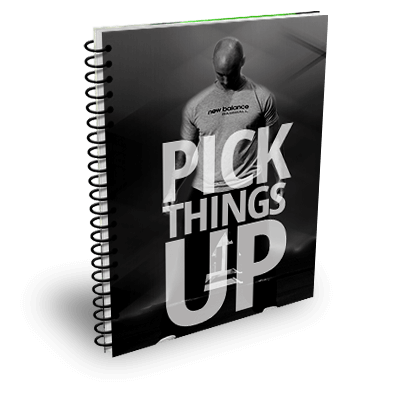90s Hip Hop, Complete Coach, and Mike Robertson
My good friend, Mike Robertson, released is latest resource this week…the Complete Coach Certification.
Check it out here —> http://bit.ly/2lWGhpJ
It’s on sale this week only (until Friday, 9/6) at a hefty discount.
If you’re a strength coach, personal trainer, you work with athletes, non-athletes, Doug from accounting, or ninjas, this resource will make you a more well-rounded health/fitness professional.
I had some questions for Mike about the product, but more specifically about his coaching philosophy and what he feels we (as an industry) need to do better.

Copyright: jtrillol / 123RF Stock Photo
Mike and Tony Talk Shop
TG: Mike, first things first: When I came onto your podcast a few weeks ago I introduced you to muy new favorite obsession: the Take It Personal Radio Podcast. How much do you love me it? Which has been your favorite episode (I know it’s hard to choose)?

I have only two words:
Life changing.
Seriously, I love that show so much. I mean, it’s all of the artists I grew up listening to, chopped and mixed to perfection.
My favorite so far is the Wu-Tang episode, but anyone that really knows me knows that I’m a pretty massive fan of the WU!
Note from TG: It’s hard to pick my favorite, but if I had to choose I’d go with the DJ Premier Tribute. Eight freakin hours or Premier beats. My head just about exploded when I listened to it for the first time. And then there’s the Native Tongues (Tribe Called Quest, De La Soul, Jungle Brothers, Queen Latifah, Money Love, etc) tribute that’s something like 12-13 hours long.
I can’t handle it.
TG: Okay, let’s get on track: What was your vision/goal in creating the Complete Coach Certification?
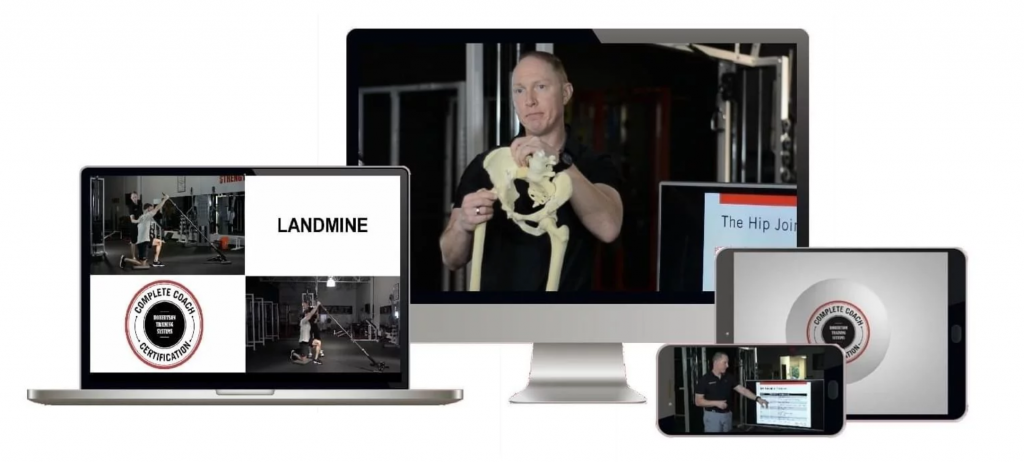
MR: Simple: To push our industry forward, and over time, positively influence 10,000 trainers and coaches across the globe.
Unfortunately what I’m seeing nowadays is a dearth of trainers/coaches who have gone the traditional route – school and a certification – and then struggle to be of any value whatsoever on the gym floor.
They can’t interact with other humans.
They can’t progress or regress clients.
And forgot about asking them to write a program! Their brains are so scattered and influenced by random Instagram trainers you can’t get a cohesive, streamlined program out of them to save their lives.
And while I may sound a little harsh, the fact of the matter is, it’s not really their fault.
This is the culture we’ve created for training and coaching.
So my goal is to fix that.
To show trainers and coaches how systems and procedures can make their lives easier, and help them get better results.
To show them it’s not about knowing 1,879 exercise variations, but knowing 10-15 really good exercises, being able to progress/regress as necessary, and then coach the hell out of them.
And to show them that if you act like a professional and get really good at what you do, this can be an amazing career.
One where you can make real money and have a life outside of the gym as well.
At the risk of sounding bold or narcissistic, here’s where I’m at:
I’m only 41 but I don’t think it’s too soon to start thinking about my legacy.
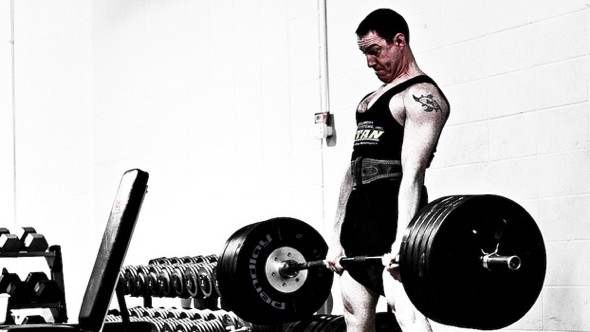
- What did I bring to the table?
- Did I really make an impact?
- Or did I live a life where I could’ve done more, and instead settled to play small ball?
If I go out tomorrow, I want people to be like “That Mike Robertson wasn’t perfect, but damn he did his part and made a massive push to drive this industry forward.”
TG: I, uh, taught my toddler to go pee-pee in the potty last week. That’s my legacy…haha. I know this is about as lame of a question as I can ask (but I’m going to ask it anyway). What are some common mistakes you find coaches make with regards to program design?
MR: I don’t think it’s a lame question – it’s actually one we need to be asking more often.
Here’s a brain dump:
- Having no clear goal.
- Having too many goals and “program jumping.”
- Not knowing the basics of program design (sets/reps/time under tension, how they all work together, etc.)
- Poor (if not awful) exercise selection.
- A lack of cohesiveness across all elements of the program (resistance training, conditioning, etc.)
- Failing to meet a client/athlete where they’re at.
- Failing to give a client/athlete some of what THEY WANT in the program.
- Letting their beliefs/training focus influence that of their clients/athletes.
- Being too boring with their programming.
- Being too random with their programming.
I mean I could go on and on here, but hopefully you catch my drift.
As an industry, we have a looooooooong way to go to get our program design skills up to snuff.
TG: What do you feel has been the biggest change or maturation in your own programming since you first started coaching? As an example, for me, it was the under-appreciation of sub-maximal training; I’m a firm believer (now) that easy training is good training.
MR: Man this is a really tough one, so I’m going to give you two:
1 – I do a better job of planning and programming all elements of a program nowadays. For instance in the past, I was a powerlifter so I skewed everyone towards a strength focus.
Because if it was good enough for me, it was good enough for them. Right???
It’s taken me a long time to break that habit, but now I can write a really smooth and well-rounded program for virtually any client or athlete.
TG: Oh man, good one!
2 – The second piece is I’m better at streamlining and transitioning clients between two programs.
Let me explain that in a bit more depth…
Imagine taking a client who is doing an accumulation phase and they’re using like 60-70% of their 1 rep max.
Then the next week, you decide they need to move to max strength and so you start crushing them with 90% loads.
Can you imagine how jarring that is to the body?
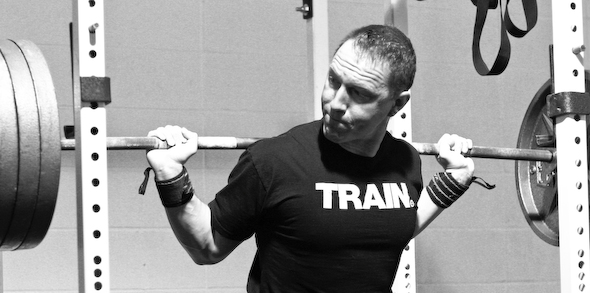
So it’s been a big goal of mine to smooth out all of the elements I have to program for my athletes – from speed/power, to strength, to conditioning – and trying to make those transitions from block to block smoother and easier on the athlete.
It’s never perfect, but I’m light years of where I was even a few years back.
TG: Complete off-topic, but is Bill (Hartman) a cyborg?
He is, but here’s the strangest part – he’s not alone.
There are actually a few hiding in plain sight in our industry.
I’m sure there are others, but these three I can confirm from first-hand experience.
TG: I lived with Eric for two years and was a business partner for eight, I can confirm he’s not a T-1000 (but close).
One of my biggest pet peeves in this industry (other than kipping pull-ups) is how some coaches take this bravado approach and more or less “bully” people into thinking that THEIR way is the only way to coach “x” exercise.
I feel this is a narrow-minded take and fails to appreciate (much less consider) each person’s individual anatomy and how that will dictate set-up and which variation of certain lifts will be best suited for them.
Your take? Agree? Disagree?
MR: Couldn’t agree more.
TG: Okay, whew, good. Cause if you didn’t shit was gonna get awkward.
MR – and that’s where I think progressions/regressions come into play.
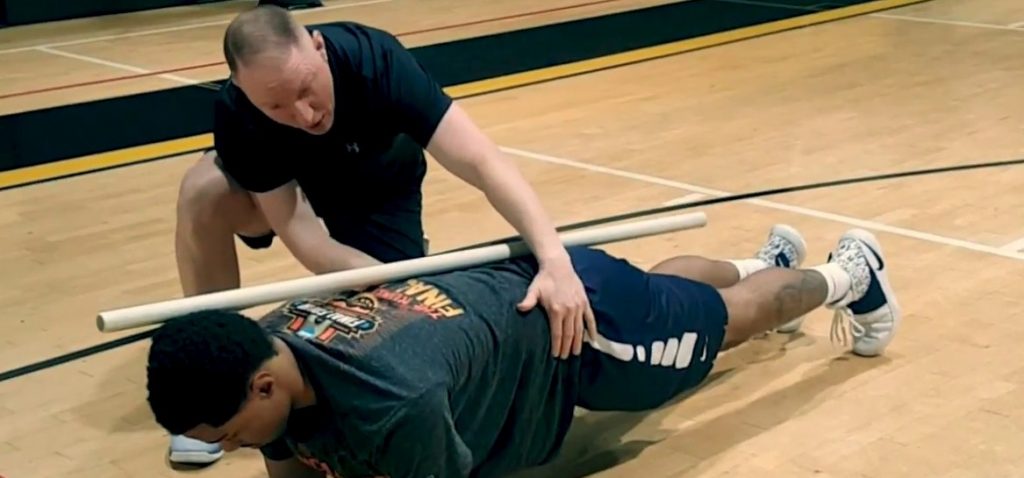
I have a model for what I want a squat/deadlift/push-up/whatever to look like, but I also realize that everyone is going to move different.
- They have different lever lengths.
- Their body (thorax, pelvis, hips, etc.) are positioned differently.
- They have different joint structures on top of that.
So while I might have my model, I also have to realize that every/client athlete is going to find the strategy that works most effectively for them, based on their goals.
Part of the evolution of coaching is realizing that how you think/feel/move is great, but it shouldn’t necessarily impact how you train other people.
Once you get there, training and coaching become a lot more fun.
TG: One missing component of program design, I feel, is centered around the soft skills of coaching. It’s one thing to write a solid program, but then how it’s executed and coached is whole different matter.
I know you touch on this in the certification, but can you maybe elaborate on this here?
MR: Look man, I got by for my first 3-5 years on the floor because of soft skills, so I’d like to think I’m better to speak on this than most!
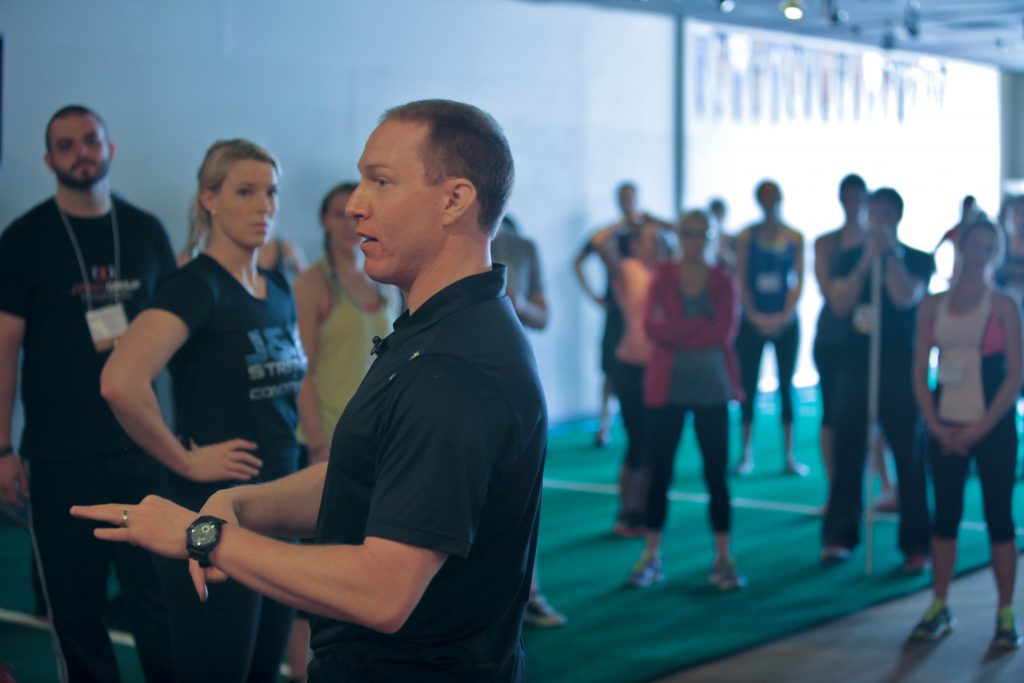
A big part of my success early-on was due to my ability to relate to people, to empathize, and to build rapport – NOT due to my coaching or program design skills.
I know John Kiely has talked about this in the past, but there’s actual research out there that shows if a client likes you and has positive emotions about you, that they could potentially get better results than someone who might have a “superior” program!
TG: The fuck outta here Mike Robertson! What’s next? Telling me bacon isn’t delicious? That Bachelor in Paradise isn’t where one find true love?
Isn’t that crazy?
When they like you, they have the right biochemical make-up when they enter the gym, and they end up getting better results.
But this is why I’m such a stickler for finding that blend between the hard and soft skills.
Relationships, rapport, and trust are critical – if you don’t have them, you won’t have success in this industry.
Period.
But the results are fast tracked when you have streamlined programming and coaching on top of that.
I’m sure you would agree, it’s not an either-or proposition – but finding the balance that works best for you as a trainer or coach.
Complete Coach Certification
I know I say this all…the…time, but it needs repeating:
Those who invest in themselves will last longer in this industry, are less likely to burn out, and, frankly, will often make more money and be more successful.
There aren’t many coaches whom I direct other coaches to more than Mike.
I’ve learned a ton from him throughout the years, I still do, and he’s really outdone himself with the Complete Coach Certification.
It’s on sale this week only and includes the option to pay with installments rather than one-lump sum. Everything from basic anatomy, breathing mechanics (<– SO important), keys to coaching, program design, and Mike’s “R7” protocol is covered.
There’s also a bevy of additional bonuses, including training templates, exercise regression/progression charts, and access to Mike’s fitness business webinar.
